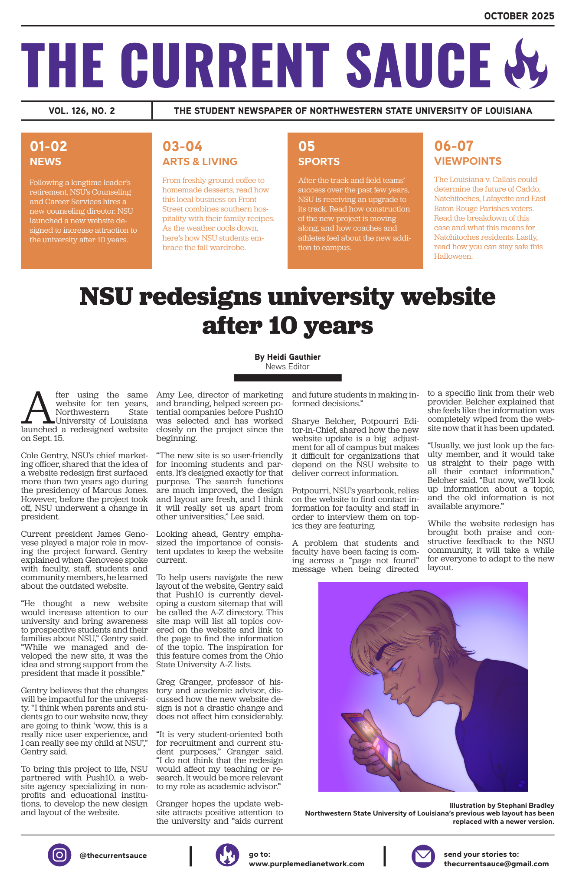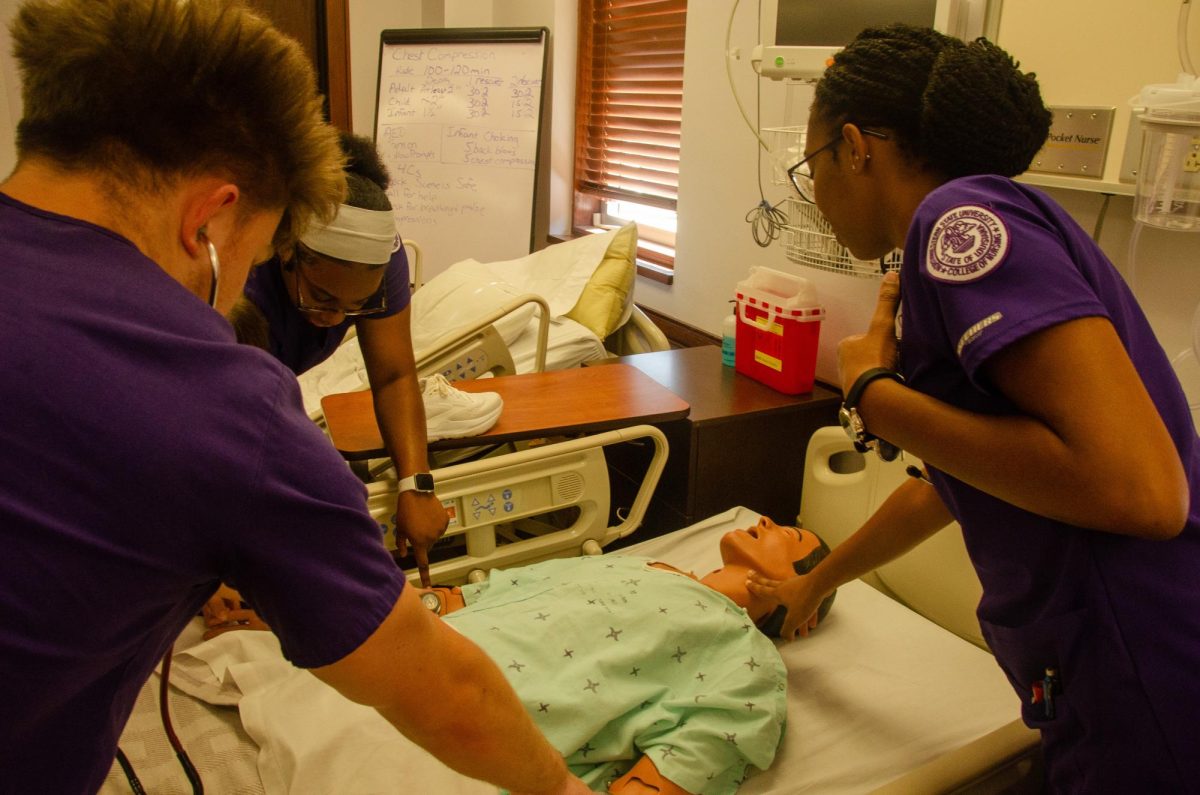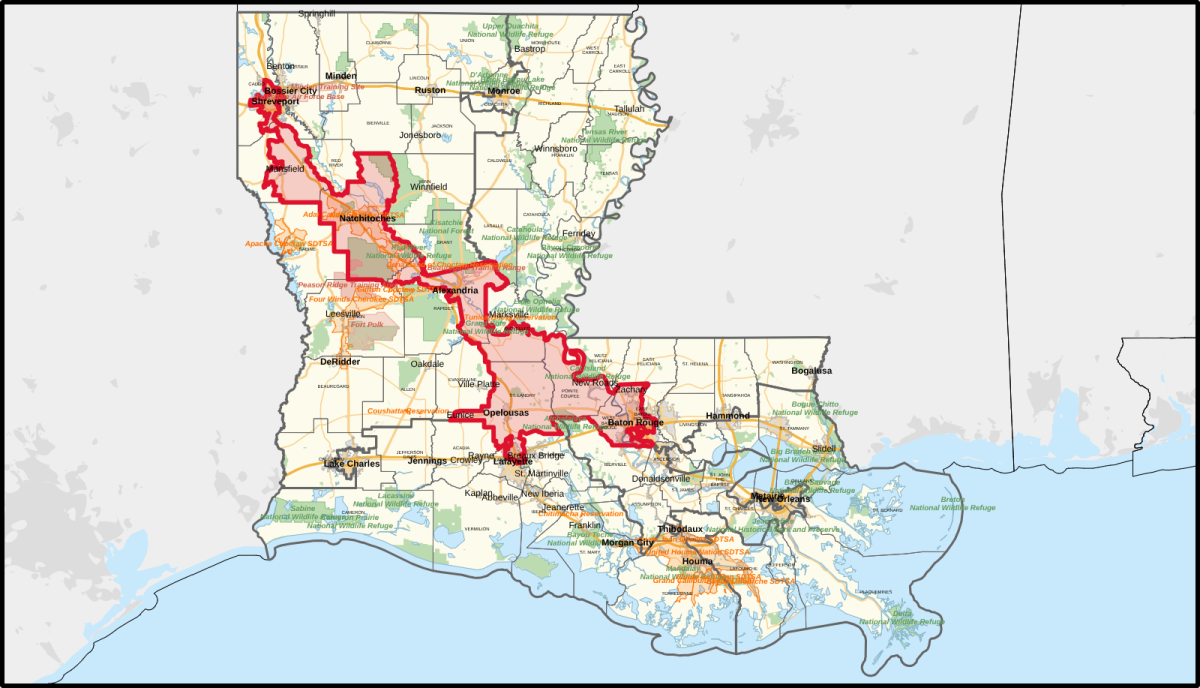With flu season in full swing, Northwestern State University of Louisiana students should consider taking the proper precautions to fight infections this fall.
According to the Centers for Disease Control and Prevention (CDC), viruses can spread in several ways other than coughing or sneezing. By touching an object that has a virus on it, then touching the mouth, nose or eyes is the most common way to catch a virus.
Dr. Sandra Kemmerly, system medical director of hospital quality at Ochsner Health, described the best way to avoid catching or spreading viruses is personal hygiene.
“People should practice good personal hygiene, including effective handwashing and stay home any time you have fever or other symptoms to help prevent the spread of these illnesses,” Dr. Kemmerly said.
Though personal hygiene practices are suggested, a new variant of COVID-19 virus is arising. The new variant, XBB.1.5, is a sub-variant of the Omicron (XBB) COVID-19 strain. According to the CDC’s website, the new variant has contributed to a 10.9% increase in positive COVID-19 cases.
Dr. Kemmerly explained that infection from the latest variant is less severe compared to previous variants.
“The virus itself doesn’t look or act much different than previous variants,” Dr. Kemmerly said. “The symptoms are the same as before; fever, chills, shortness of breath, cough, sore throat, runny nose and muscle aches.”
Since early September, Dr. Kemmerly has seen a decrease in COVID-19 cases or hospitalizations. She believes the decrease is because of the use of vaccines.
“Vaccines remain our best line of defense against severe illness related to the COVID-19 virus, as well as other communicable viruses,” Dr. Kemmerly said.
In September, the Food and Drug Administration made several changes to COVID-19 vaccine products to include a single component which directly corresponds to the XBB.1.5 variant.
“They (vaccines) are formulated to more closely target currently circulating variants and to provide protection against serious consequences of COVID-19, including hospitalization and death,” Dr. Kemmerly said.
Christopher Voigt, M.D., Fellow of the American Academy of Emergency Medicine (FAAEM), agreed with Dr. Kemmerly that vaccines have contributed to the decrease of COVID-19 cases.
“Anecdotally, we are not seeing as many patients in florid respiratory failure as we did in 2020 due to prevalence of vaccinations and the fact that this virus has now been seen by human immunity which was not the case in 2019, thus the “novel,” moniker attached to covid during the pandemic,” Dr. Voigt said.
Dr. Voigt suggests getting vaccinated for Influenza and COVID-19 and to consider wearing a mask or staying home if you experience any upper respiratory symptoms.
“As a population, we are moving to a more seasonal cycle of virus penetration similar to Flu, and with such, we can expect the cold and flu season to become the Covid, cold and flu season with a subsequently more predictable course,” Dr. Voigt said.
Dr. Voigt explained that current COVID-19 variants, such as EG.5 and FL.1.5.1, are variants of the XBB family for which the vaccine provides cross-coverage and antibody production.
“The new vaccine is based upon the XBB.1.5 variant and will be the only vaccine available this season,” Dr. Voigt said. “One should seek to be vaccinated by mid-October to be prepared for large gatherings of the holiday seasons.”
Students at NSU share their opinions on how to stay healthy with their knowledge of past personal health experiences and personal research.
Saige Trahan, freshman nursing major, believes vaccines are effective, but explains most people are not immune to COVID-19 even if they choose to get vaccinated.
“Covid isn’t as serious today but I know for a fact it is still going around,” Trahan said. “I’m not sure how the health center deals with Covid on campus, but in my hometown they try their best to make sure students are receiving the proper care when fighting viruses.”
Sophia Naquin, freshman biology major, believes that COVID-19 is still a concern, but it isn’t as serious as other severe diseases.
“Vaccines for the flu are more effective than the Covid vaccines, because of how much research and time was put into making a vaccine for flu,” Naquin said.
NSU students looking to receive the flu and/or the COVID-19 vaccines could contact their local healthcare provider or pharmacy.


































